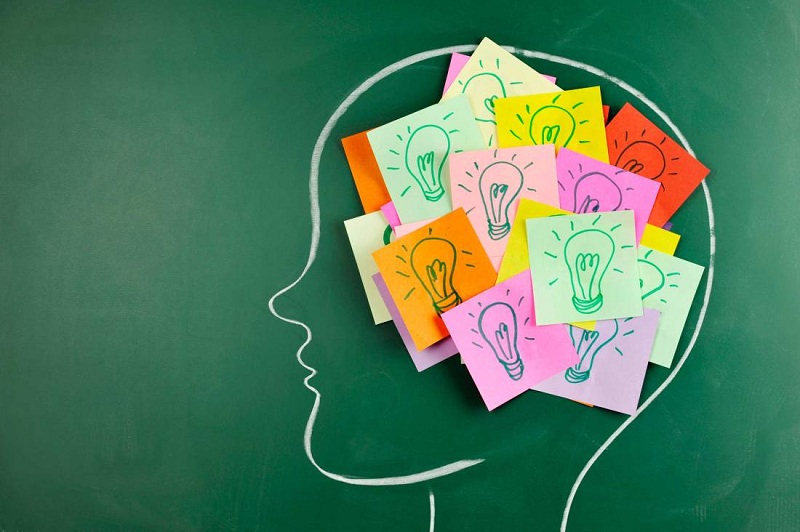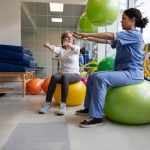Memory is the ability to remember events or events with accuracy and like the rest of the capabilities of the human being, it is not the same in all individuals but it can be enhanced within natural possibilities and can also be affected by various pathologies or disorders.
Its operation is very similar to that of a computer through which it executes orders in the brain using as an anchor point a reference that can be acoustic, sensitive, reminder, sensory and referential so that different types of memory are distinguished depending on this fact.
Types of memory by stimulus
As we mentioned earlier, memory is executed and exercised through stimuli that can cause more impact in some people than in others depending on their sensitive acuity and based on it, we can classify it in:
- Visual memory when it obeys visual stimuli such as remembering a person’s face (being familiar) and can also be used in the memory of more complete containers as a scene (what is known as photographic memory) and consists of the ability to remember everything exactly as it was in a photograph or image.
- Sensory memory goes a step further and anchors memories in the stimuli perceived during events or events to be remembered involving more senses apart from sight, and greatly influences the total ability to remember exact facts in a person and demands certain synchronicity in the perception of the senses, because sometimes a person can have very good visual memory but not reconstructive, for example, “I remember faces but not their names” because no stimuli were associated at the time of linking both facts in the same event.
- Reconstructive memory is capable of attributing memories to situations in the past and the accuracy in the perception of them depends to a large extent on the ability of the person to perceive or attribute stimuli to binding events.
- The auditory memory is the one that relates the sounds and articulations of the language.
All these types of memory correspond to the explicit memory that induces the abilities of people to establish memories and recognize them as such. Implicit memory, on the other hand, is the innate capacity of the individual to learn and establish patterns of behavior before certain events or situations.
Based on these criteria and their permanence or mutability over time, memory can also be considered in the short or long term, so at this point we will deduce that the issue is too complex to be dealt with unilaterally, being able to strengthen or strengthen the anchoring or trigger stimulus through successive repetitions, for example, visualizing images for a specific time and remembering the elements it contains.
Memory problems and associated causes
- Age is the main cause of the loss of faculties that interfere in memory, because during the aging process there is a progressive deterioration that in some cases can be aggravated by diseases that are binding (Alzheimer’s) or non-binding (blood vasoconstriction), but in general, all people are exposed to a gradual loss of memory regardless of their state of health.
- Exercise, one of the causes complementary to the normal deterioration of aging that cause the loss of memory is the lack of exercise because like any other part of the body it needs to be used for the enhancement of their abilities. During the first years of life is when we most use the memory faculties because of the study, but once we consolidate employment use of their exercise drops significantly, especially in those people who are engaged in repetitive mechanical tasks that do not involve the need for remembering beyond the assigned scheme by default.
- Temporary psychological disorders such as stress or anxiety can affect the ability of people to remember events and events. Other disorders that involve a greater prolongation over time, such as depression, can also be somatized by a more or less marked loss in the ability to remember specific events of the present or the past.
- Accidents or traumatic injuries that affect the temporal lobe can affect long-term memory temporarily or permanently. This disorder is known as retrograde amnesia.
- Cardiovascular problems can cause vasoconstriction in the veins and arteries, making it difficult to transport oxygen to the brain, causing generalized loss of faculties, including decreased ability to remember.
- Alzheimer’s, is the main neurodegenerative mental illness involved in the progressive and irreversible loss of memory that returns patients to the zero point of learning by the inability to remember the knowledge acquired during life, including the most basic such as feeding, bathing or to make their needs among others, inducing them to vegetative stages in the advanced stages of the disease. Although the triggering cause of Alzheimer’s disease has not yet been confirmed by science, it is attributed a prion origin that affects the decoding of prion proteins and it is estimated that certain behaviors could induce erratic procedures that trigger self-destruction.
- Brain tumors progressively deteriorate the normal functions of the brain including the ability to remember and can be accused to a greater or lesser extent depending on the area where you are.
Home remedies to improve memory
Speaking of home remedies for memory, we cite some that can help reinforce it, recommended in people prone to forget things.
- Ginseng: This plant provides antiplatelet components while having vasodilator properties which help improve blood circulation and have dilated and clean capillaries. All this will help to have a better memory and improve our intellectual activity.
- Prunes: It is believed that prunes are ideal to stimulate memory, it is recommended to eat 3 plums a day. It is recommended that they eat themselves so that all their properties perform in our body.
- Eat chocolate: Chocolate is rich in flavonoids, it serves to strengthen the memory, we must emphasize that chocolate activates our memory and also speeds it up. In these cases, it is recommended to eat a piece of chocolate after breakfast.
- Ginkgo Biloba: This plant helps improve the circulation of blood in the brain, which will help the brain cells are more oxygenated.
- Infusion of salvia: Salvia Infusion can help strengthen our memory because some of its components help in the work and reinforcement of it. It is recommended to put in a liter of water, sage and then heat it for a time of 5 minutes. This infusion should be taken daily in the morning.
Recommendations and tips to improve memory and prevent deterioration
- Exercise, it assiduously through activities that require concentration and mental effort such as crossword puzzles, riddles, sudokus etc.
- Practicing physical exercise also helps improve memory indirectly by oxygenation of tissues and brain.
- Practicing some relaxing activity, such as Yoga or Pilates helps to avoid distressing sensations such as stress and anxiety that can interfere with the proper functioning of memory.
- Paying attention, to details will help to broaden the spectrum of visual memory by increasing the capacity of the sensitive memory. For example: when closing the door with a key, pay attention to it, in the movement of the key when closing, so when you leave the house you will not have the doubt that sometimes can happen to us if we have locked the door or not.
- A balanced diet will provide all the necessary nutrients to slow down the cognitive deterioration produced by age maintaining the innate faculties for as long as possible. Foods rich in minerals such as phosphorus, magnesium, and potassium will help to strengthen it.
- Drinking in moderation, memory and alcohol are not good friends, so limiting your consumption is necessary.
- Antioxidants, these substances help to have a healthier brain and protect it from possible deterioration.
- Flavonoids, various scientific studies indicate that these are related to a better cognitive functioning, promoting memory and areas that are related to learning. Chocolate is rich in these natural pigments.
- Use the other hand. Change can help us to force other parts of the brain to work that is not used to performing that task in a different way and thus stimulate those parts of the brain. For this we can do routines such as washing our teeth with the opposite hand to which we are accustomed, changing the clock to the other arm, using the computer mouse with the other hand.
- Sleep well. You have to sleep the recommended hours and have a proper rest, so the brain and its neurons rest and have their time to absorb and classify the things that have happened to us during the day, at the same time that upon waking us this will be more active and with more energy if you could have a proper rest.















